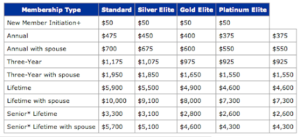
This guide aims to provide you with comprehensive insights and practical tips to enhance your SEO efforts, drawing from the expertise of Feedback Magazine.
Introduction
In the digital age, mastering Search Engine Optimization (SEO) is like finding the key to a treasure chest filled with endless opportunities. Whether you’re a blogger, a small business owner, or a large enterprise, understanding and implementing effective SEO strategies can dramatically increase your online visibility and drive significant traffic to your site. This guide aims to provide you with comprehensive insights and practical tips to enhance your SEO efforts, drawing from the expertise of Feedback Magazine.
Understanding SEO
What is SEO?
SEO stands for Search Engine Optimization. It involves optimizing your website and its content to rank higher in search engine results pages (SERPs), thereby increasing the quantity and quality of traffic to your site. SEO encompasses various techniques, including keyword research, on-page optimization, technical enhancements, and off-page strategies like link building.
Why SEO is Crucial for Online Success
SEO is essential because it helps your website stand out in a crowded online marketplace. Higher rankings on search engines like Google mean more visibility, which can lead to increased website traffic, better user engagement, and higher conversion rates. Essentially, effective SEO can be the difference between being found by potential customers and being lost in the vast expanse of the internet.
Keyword Research
Importance of Keyword Research
Keyword research is the foundation of any successful SEO strategy. It involves identifying the terms and phrases that potential customers are using to search for products or services similar to yours. By targeting the right keywords, you can attract relevant traffic to your site.
Tools for Effective Keyword Research
Several tools can help you conduct keyword research effectively. Google Keyword Planner, Ahrefs, SEMrush, and Moz are popular options that provide insights into search volume, keyword difficulty, and competitive analysis. Using these tools, you can uncover valuable keywords that align with your business goals.
Long-Tail vs. Short-Tail Keywords
Long-tail keywords are longer and more specific phrases that typically have lower search volumes but higher conversion rates. Short-tail keywords are broader and more competitive. Balancing both types can help you attract a diverse audience and improve your chances of ranking for various search terms.
On-Page SEO
Title Tags and Meta Descriptions
Title tags and meta descriptions are crucial elements of on-page SEO. The title tag is the clickable headline that appears in search results, while the meta description provides a brief summary of the page content. Both should include relevant keywords and be crafted to entice users to click through to your site.
Header Tags (H1, H2, H3, H4)
Header tags help organize your content and make it easier for search engines to understand the structure of your page. The H1 tag is typically used for the main title, while H2, H3, and H4 tags are used for subheadings. Proper use of header tags enhances readability and SEO.
URL Structure
A clean and descriptive URL structure can improve your site’s SEO. URLs should be concise, include relevant keywords, and avoid unnecessary parameters. A well-structured URL not only helps search engines understand your content but also makes it easier for users to navigate your site.
Internal Linking
Internal linking involves linking to other pages within your website. This practice helps search engines crawl your site more effectively and keeps users engaged by providing additional relevant content. Use descriptive anchor text for your internal links to improve SEO.
Content Creation
Importance of High-Quality Content
High-quality content is the cornerstone of SEO. It attracts visitors, encourages engagement, and earns backlinks from other websites. Your content should be informative, engaging, and tailored to your audience’s needs and interests.
Content Length and Depth
Longer, in-depth content tends to perform better in search results. However, quality should never be sacrificed for quantity. Aim to provide comprehensive information on your topic, addressing common questions and offering valuable insights.
Using Keywords Naturally
Incorporate your target keywords naturally within your content. Keyword stuffing, or overloading your content with keywords, can harm your SEO efforts. Focus on creating content that flows naturally and provides value to your readers.
Importance of Multimedia (Images, Videos, Infographics)
Including multimedia elements like images, videos, and infographics can enhance your content and improve user engagement. These elements make your content more appealing and shareable, which can positively impact your SEO.
Technical SEO
Site Speed and Performance
A fast-loading website is crucial for both user experience and SEO. Slow sites can frustrate visitors and lead to higher bounce rates. Use tools like Google PageSpeed Insights to identify and fix performance issues.
Mobile-Friendliness
With more people accessing the web via mobile devices, having a mobile-friendly site is essential. Responsive design ensures that your site looks and functions well on all screen sizes, improving both user experience and SEO.
Secure Websites (HTTPS)
Security is a priority for search engines and users alike. Using HTTPS encryption protects user data and can boost your site’s rankings. Ensure your site has a valid SSL certificate to secure data and build trust with your visitors.
XML Sitemaps
An XML sitemap helps search engines understand the structure of your site and find all your pages. Submitting your sitemap to Google Search Console can improve the indexing of your site and ensure all your content is discoverable.
User Experience (UX)
Importance of UX in SEO
User experience (UX) is closely linked to SEO. A well-designed, easy-to-navigate site keeps users engaged and encourages them to stay longer, which can positively impact your search rankings.
Website Navigation and Structure
A clear and logical site structure makes it easier for users to find what they’re looking for. Use intuitive menus, clear categories, and a consistent layout to enhance navigation and user satisfaction.
Readability and Formatting
Content that is easy to read and well-formatted keeps users engaged. Use short paragraphs, bullet points, and headings to break up text and make it more digestible. Readable content is more likely to be shared and linked to, boosting your SEO.
Off-Page SEO
Backlinks and Their Importance
Backlinks, or inbound links from other websites, are a critical factor in SEO. They signal to search engines that your site is authoritative and trustworthy. High-quality backlinks from reputable sites can significantly boost your rankings.
Strategies for Earning High-Quality Backlinks
Earning high-quality backlinks requires a strategic approach. Create valuable content that others want to link to, engage in guest blogging, and build relationships with influencers in your industry. Avoid spammy link-building tactics that can harm your SEO.
Social Signals and Their Impact
While social signals (likes, shares, comments) are not direct ranking factors, they can indirectly impact your SEO. Content that is widely shared on social media can drive traffic to your site and increase the likelihood of earning backlinks.
Local SEO
Importance of Local SEO
Local SEO is crucial for businesses that serve a specific geographic area. Optimizing for local search can help you attract customers who are looking for services or products in your vicinity.
Google My Business Optimization
Claiming and optimizing your Google My Business listing can improve your local search visibility. Ensure your business information is accurate and complete, and encourage satisfied customers to leave positive reviews.
Local Citations and Reviews
Local citations (mentions of your business on other websites) and online reviews play a significant role in local SEO. Consistent NAP (Name, Address, Phone number) information across all citations helps improve your local rankings.
Analytics and Monitoring
Tracking Your SEO Efforts
Regularly tracking your SEO performance is essential to understand what’s working and what needs improvement. Use tools like Google Analytics and Google Search Console to monitor your site’s traffic, rankings, and user behavior.
Tools for Monitoring SEO Performance
Several tools can help you monitor your SEO performance, including SEMrush, Ahrefs, and Moz. These tools provide insights into keyword rankings, backlinks, site audits, and more, enabling you to make data-driven decisions.
Making Data-Driven Decisions
Analyzing your SEO data allows you to refine your strategies and improve your results. Identify trends, track your progress, and adjust your approach based on the insights you gain from your analytics tools.
Common SEO Mistakes to Avoid
Keyword Stuffing
Keyword stuffing can negatively impact your SEO. Instead of overloading your content with keywords, focus on creating high-quality, valuable content that naturally incorporates relevant terms.
Ignoring Mobile Users
Neglecting mobile optimization can hurt your SEO. Ensure your site is mobile-friendly to provide a good user experience for visitors on all devices.
Neglecting Technical SEO
Ignoring technical aspects of SEO can hinder your site’s performance. Regularly audit your site to identify and fix issues related to site speed, mobile-friendliness, and security.
Future Trends in SEO
Voice Search Optimization
Voice search is becoming increasingly popular, and optimizing for it can give you a competitive edge. Focus on natural language and long-tail keywords to capture voice search traffic.
AI and Machine Learning in SEO
AI and machine learning are transforming SEO by providing more personalized search experiences. Understanding how these technologies impact search algorithms can help you stay ahead of the curve.
The Role of User Intent
Search engines are getting better at understanding user intent. Creating content that aligns with the search intent of your audience can improve your rankings and drive more relevant traffic to your site.
SEO for E-commerce
Product Page Optimization
Optimizing product pages is crucial for e-commerce SEO. Use descriptive titles, detailed product descriptions, and high-quality images to attract and convert visitors.
Importance of User Reviews
User reviews can boost your SEO by adding fresh, user-generated content to your site. Encourage customers to leave reviews and respond to them to build trust and credibility.
E-commerce-Specific SEO Strategies
E-commerce sites require unique SEO strategies, such as optimizing for product and category pages, managing duplicate content, and ensuring a smooth checkout process.
SEO Tools and Resources
Recommended SEO Tools
Several tools can assist with your SEO efforts, including Google Analytics, Google Search Console, SEMrush, Ahrefs, Moz, and Yoast SEO. These tools offer a range of features to help you optimize and monitor your site.
Online Resources and Communities
Staying updated with the latest SEO trends and best practices is essential. Follow reputable blogs, join SEO forums, and participate in online communities to learn from industry experts and peers.
Conclusion
Mastering SEO is an ongoing journey that requires a blend of technical skills, creative content, and strategic thinking. By understanding the key elements of SEO and staying updated with the latest trends, you can improve your site’s visibility and attract more organic traffic. Remember, the world of SEO is ever-evolving, so continuous learning and adaptation are crucial to achieving long-term success.
FAQs
What is the best way to start with SEO?
The best way to start with SEO is by conducting thorough keyword research to identify the terms your target audience is searching for. From there, focus on creating high-quality content, optimizing your on-page elements, and building a strong technical foundation for your site.
How long does it take to see results from SEO?
SEO is a long-term strategy, and it can take several months to start seeing significant results. Factors such as competition, keyword difficulty, and the quality of your SEO efforts can impact the timeline.
Can I do SEO myself, or should I hire a professional?
You can certainly start with SEO on your own, especially with the wealth of online resources available. However, hiring a professional or an SEO agency can provide expert insights and help accelerate your progress, particularly for more complex or competitive industries.
How often should I update my SEO strategy?
SEO is dynamic, so it’s important to regularly review and update your strategy. Monitor your performance, stay informed about algorithm updates, and adjust your approach based on your analytics and industry trends.
What are the most important factors in SEO?
The most important factors in SEO include high-quality content, relevant keywords, backlinks, technical optimization, and a positive user experience. Balancing these elements can help you achieve better search engine rankings and drive more organic traffic to your site
Read More:







